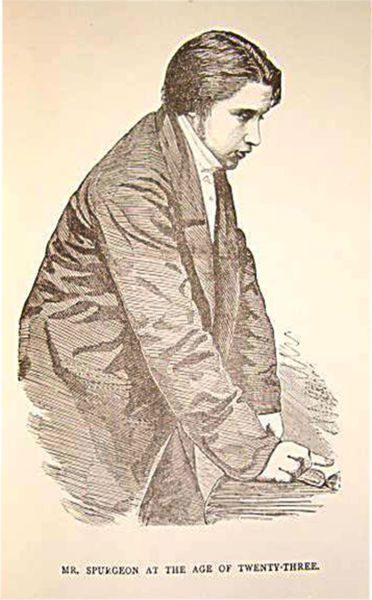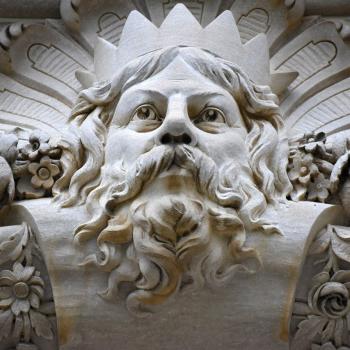
Today in 1856 my friends at Christian Heritage London reminded us, a great trial of depression was unleashed on Spurgeon. We quite rightly think of him as a great preacher. But in an instant, he was transported into great depression. This was not the only time he experienced depression, either.
None of us is immune from the troubles this world. For Spurgeon the trigger was the carnage and death unleashed when someone cried out ‘Fire!’ during a gathering of 12,000 who were there to hear him preach. For us maybe the trigger is something altogether milder. The feelings may be similar, however.
I thought I would share with you, 160 years after these events the way Spurgeon described both their effects on him, and how he experienced miraculous healing.
When, like a whirlwind, the destruction was overpast, when the whole of its devastation was visible to my eye, who can conceive the anguish of my sad spirit? I refused to be comforted; tears were my meat by day, and dreams my terror by night. I felt as I had never felt before.
“My thoughts were all a case of knives,” cutting my heart in pieces, until a kind of stupor of grief ministered a mournful medicine to me. I could have truly said, “I am not mad, but surely I have had enough to madden me, if I should indulge in meditation on it.”
I sought and found a solitude which seemed congenial to me. I could tell my griefs to the flowers, and the dews could weep with me. Here my mind lay, like a wreck upon the sand, incapable of its usual motion. I was in a strange land, and a stranger in it.
My Bible, once my daily food, was but a hand to lift the sluices of my woe. Prayer yielded no balm to me; in fact, my soul was like an infant’s soul, and I could not rise to the dignity of supplication. “Broken in pieces all asunder,” my thoughts, which had been to me a cup of delights, were like pieces of broken glass, the piercing and cutting miseries of my pilgrimage. I could adopt the words of Dr. Watts, and say,—
“The tumult of my thoughts
Doth but enlarge my woe;
My spirit languishes, my heart
Is desolate and low.
“With every morning-light
My sorrow new begins.
Look on my anguish and my pain,
And pardon all my sins.”
Then came “the slander of many,”—barefaced fabrications, libellous insinuations, and barbarous accusations. These alone might have scooped out the last drop of consolation from my cup of happiness; but the worst had come to the worst, and the utmost malice of the enemy could do no more.
Lower they cannot sink who are already in the nethermost depths. Misery itself is the guardian of the miserable. All things combined to keep me, for a season, in the darkness where neither sun nor moon appeared.
I had hoped for a gradual return to peaceful consciousness, and patiently did I wait for the dawning light. But it came not as I had desired; for He who doeth for us exceeding abundantly above all that we ask or think, sent me a happier answer to my requests.
I had striven to think of the unmeasurable love of Jehovah, as displayed in the sacrifice of Calvary; I had endeavoured to muse upon the glorious character of the exalted Jesus; but I found it impossible to collect my thoughts in the quiver of meditation, or, indeed, to place them anywhere but with their points in my wounded spirit, or else at my feet, trodden down in an almost childish thoughtlessness.
On a sudden, like a flash of lightning from the sky, my soul returned unto me. The burning lava of my brain cooled in an instant. The throbbings of my brow were still; the cool wind of comfort fanned my cheek, which had been scorched in the furnace. I was free, the iron fetter was broken in pieces, my prison door was open, and I leaped for joy of heart. On wings of a dove, my spirit mounted to the stars,—yea, beyond them.
Whither did it wing its flight, and where did it sing its song of gratitude? It was at the feet of Jesus whose Name had charmed its fears, and placed an end to its mourning. The Name—the precious Name of Jesus, was like Ithuriel’s spear, bringing back my soul to its own right and happy state. I was a man again, and what is more, a believer.
The garden in which I stood became an Eden to me, and the spot was then most solemnly consecrated in my restored consciousness. Happy hour! Thrice-blessed Lord, who thus in an instant delivered me from the rock of my despair, and slew the vulture of my grief! Before I told to others the glad news of my recovery, my heart was melodious with song, and my tongue endeavoured tardily to express the music.
Then did I give to my Well-beloved a song touching my Well-beloved; and, oh! with what rapture did my soul flash forth its praises! But all—all were to the honour of Him, the First and the Last, the Brother born for adversity, the Deliverer of the captive, the Breaker of my fetters, the Restorer of my soul.
Then did I cast my burden upon the Lord; I left my ashes, and arrayed myself in the garments of praise, while He anointed me with fresh oil. I could have riven the very firmament to get at Him, to cast myself at His feet, and lie there bathed in the tears of joy and love.
Never since the day of my conversion had I known so much of His infinite excellence, never had my spirit leaped with such unutterable delight. Scorn, tumult, and woe seemed less than nothing for His sake. I girded up my loins to run before His chariot, I began to shout forth His glory, for my soul was absorbed in the one idea of His glorious exaltation and Divine compassion.
After a declaration of the exceeding grace of God towards me, made to my dearest kindred and friends, I essayed again to preach. The task which I had dreaded to perform was another means of comfort, and I can truly declare that the words of that morning were as much the utterance of my inner man as if I had been standing before the bar of God. The text selected was in Philippians 2:9–11. (See The New Park Street Pulpit, No 101, “The Exaltation of Christ”)
C. H. Spurgeon, C. H. Spurgeon’s Autobiography, Compiled from His Diary, Letters, and Records, by His Wife and His Private Secretary, 1854–1860, vol. 2 (Chicago; New York; Toronto: Fleming H. Revell Company, 1899), 195–196.













